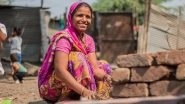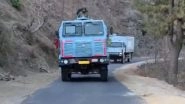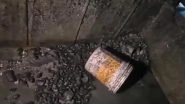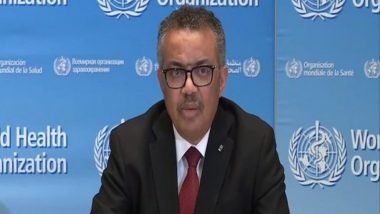Geneva, December 1: Amid the spread of new coronavirus variant Omicron, World Health Organization (WHO) chief Tedros Adhanom Ghebreyesus on Wednesday said the world has a "toxic mix" of low vaccine coverage and very low testing - a recipe for breeding and amplifying variants. "Globally, we have a toxic mix of low vaccine coverage, and very low testing - a recipe for breeding and amplifying variants. That's why we continue to urge countries to fully fund the ACT Accelerator, to ensure equitable access to vaccine, tests and therapeutics all over the world," Tedros said at a press briefing.
"But if countries and individuals don't do what they need to do to stop transmission of Delta, they won't stop Omicron either," he added.
The new Omicron coronavirus variant has been confirmed in 23 countries and their number is expected to rise, Tedros said while adding the development "extremely seriously." "WHO takes this development extremely seriously, and so should every country. But it should not surprise us. This is what viruses do. And it's what this virus will continue to do, as we long as we allow it to continue spreading," he said. Tedros Adhanom Says First Meeting of WHO Body to Discuss New Pandemics Treaty to Be Held on March 1.
Calling for the prevention of transmission of Omicron, Tedros said, "Blanket travel bans will not prevent the international spread of Omicron, and they place a heavy burden on lives and livelihoods." While thanking Botswana and South Africa for detecting, and reporting this variant so rapidly, the WHO chief called on all countries to take rational, proportional risk-reduction measures, in keeping with the International Health Regulations. Genome Sequencing Can Finally Confirm Presence of COVID-19 Variant Omicron: Expert.
"I thank Botswana and South Africa for detecting, sequencing and reporting this variant so rapidly. It is deeply concerning to me that those countries are now being penalized by others for doing the right thing," he said. Tedros said that WHO is learning more all the time about Omicron, but there's still more to learn about its effect on transmission, the severity of disease, and the effectiveness of tests, therapeutics and vaccines.
"Several WHO advisory groups have met over the last couple of days to evaluate the emerging evidence, and prioritise the studies needed to answer these questions," he added. Earlier, the head of the UN health agency has criticized "blunt" and "blanket" measures taken by countries in the past few days to stop the spread of the Omicron variant.
In a statement on Tuesday, the WHO Director-General said that it was "deeply concerning" that Botswana and South Africa, where the new variant was first identified, were "being penalized by others for doing the right thing".
Dozens of countries have imposed travel bans on the southern African nations since the mutation was discovered at the end of last week.
(The above story is verified and authored by ANI staff, ANI is South Asia's leading multimedia news agency with over 100 bureaus in India, South Asia and across the globe. ANI brings the latest news on Politics and Current Affairs in India & around the World, Sports, Health, Fitness, Entertainment, & News. The views appearing in the above post do not reflect the opinions of LatestLY)













 Quickly
Quickly


